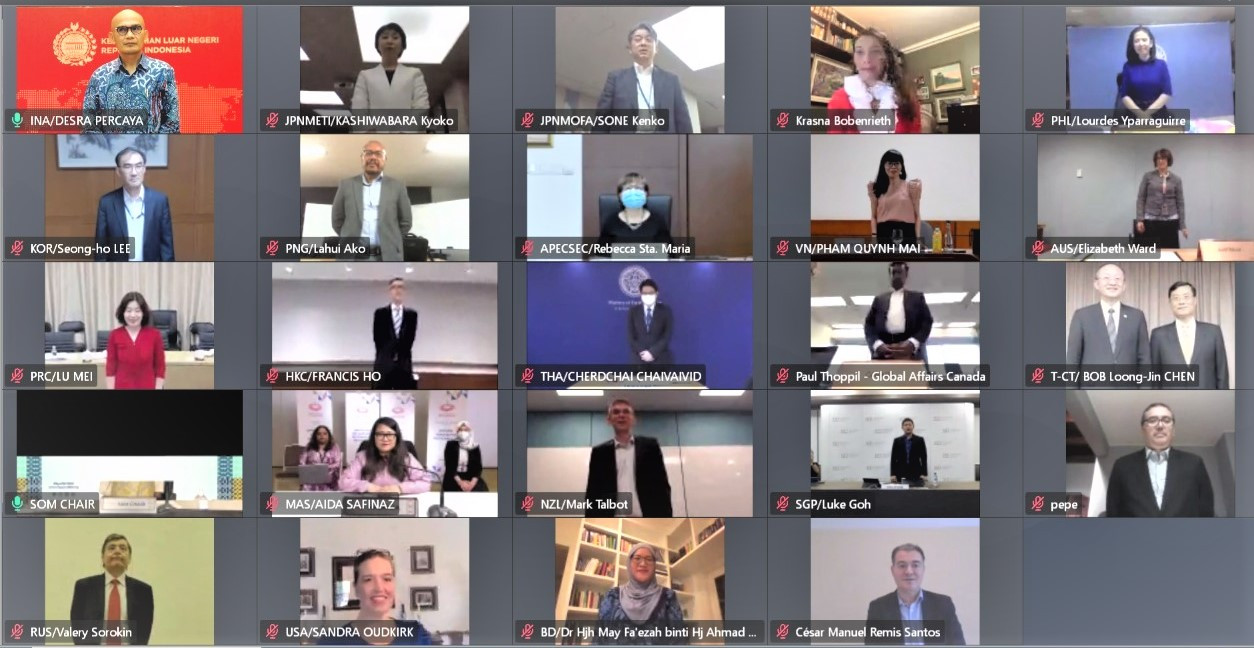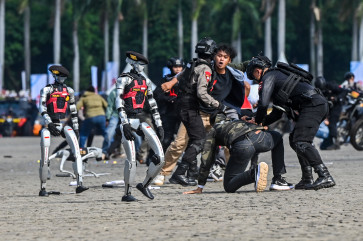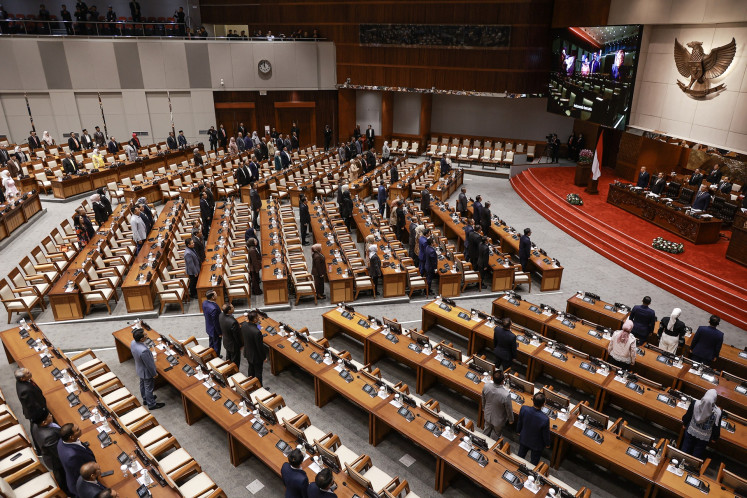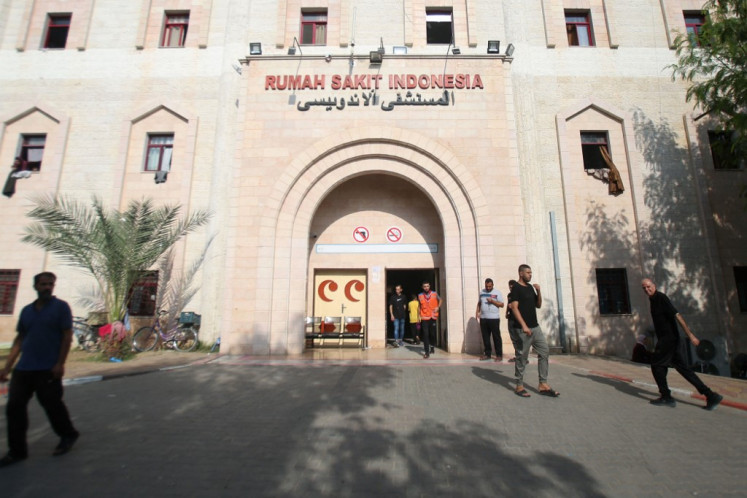Popular Reads
Top Results
Can't find what you're looking for?
View all search resultsPopular Reads
Top Results
Can't find what you're looking for?
View all search resultsFrom Bogor to Putrajaya: Building strategic trust in APEC
Since the inception of the Bogor Goals, APEC economies have enjoyed great progress in increasing trade and investment while reducing poverty.
Change text size
Gift Premium Articles
to Anyone
T
he year 2020 is crucial for the Asia-Pacific Economic Cooperation (APEC). Not only are we celebrating achievements after a quarter century of implementing the Bogor Goals of free and open trade, but we are at a crossroads: of conceding to major power rivalries or collaborating to overcome the COVID-19 pandemic – together.
When Indonesia and other APEC leaders proclaimed the Bogor Goals on Nov. 16, 1994, it was with the hope of bringing together the aspirations of the people in both developing and developed economies. It was launched and the target was set for 2020 to overcome the challenges of that time: globalization.
Since the inception of the Bogor Goals, APEC economies have enjoyed great progress in increasing trade and investment while reducing poverty.
APEC’s total merchandise trade almost quintupled between 1994 and 2019 from US$4.1 trillion to $19 trillion at an average growth of 6.7 percent per year. A trend that also existed among APEC economies was to create a more favorable environment for investment and job creation. APEC saw a declining poverty trend in the dropping number of poor people from 1.4 billion in 1994 to 240.4 million people in 2018.
Through their commitment to the Bogor Goals, APEC members recognize that the successful growth and development of their economies rely on the openness and stability of global and regional markets.
For the past couple of years, however, some economies have used APEC not as an engine of collective growth, but to project power and limited interest, thus diverting the course of cooperation in the grouping.
Instead of moving in unison to higher levels of regional economic cooperation and growth, diverging views have prevented deeper collaboration and sent an unclear message to the world. The increasing tension and strife between major economies have run contrary to the APEC spirit.
APEC needs to return to its raison d'être as the premier forum of cooperation for the Asia-Pacific. It is imperative that it not only survives global challenges, but also leads the path to global recovery.
On Nov. 20, at the first virtual APEC Economy Leaders Meeting (AELM), chaired by Malaysia, APEC leaders initiated a new vision to 2040 that builds on the spirit of the Bogor Goals. The Putrajaya Vision is to serve as the new compass for the next 20 years. It signifies a momentum to solidify strategic trust in achieving an open, dynamic, resilient and peaceful Asia-Pacific Community by 2040 for the prosperity of the people.
As the premier Asia-Pacific forum, APEC must once again leap forward in development; not just leap to overcome the pandemic, nor just to jump-start and accelerate economic growth after the waves of recession.
APEC must leap forward to establish the new normal of future regional growth under the growing opportunities brought on by a stronger multilateral trading system toward better connectivity, the digital economy and sustainable development: A world of quality growth where empowered micro, small and medium enterprises, female entrepreneurs and economic actors in the hinterland reap benefits from APEC’s interconnectedness.
As President Joko Widodo stated at the CEO Dialogue and the AELM, Indonesia continues to aspire toward quality growth within APEC and will continue to push for win-win solutions, concrete deliveries and mutually beneficial partnerships through this premier forum. And for its part, Indonesia shall contribute to a conducive economic environment by enacting the Job Creation Law as part of necessary structural reform to create competitive industries.
This leap is crucial to empowering Indonesia’s youth and millennials of today to become its leaders in 2040.
While time brings us to the eventual realization of the Putrajaya Vision, Indonesia plans to stand with its fellow economies and its people to appreciate the shared prosperity that the vision brings to the region.
With the benefit of hindsight, we hope to look back to the necessary strategic trust built the Asia-Pacific region today for our desired future, starting the vision from Bogor in 1994 and concluding Putrajaya in 2040.
***
The writer is a Foreign Ministry official who is involved with APEC. The views expressed are his own.










